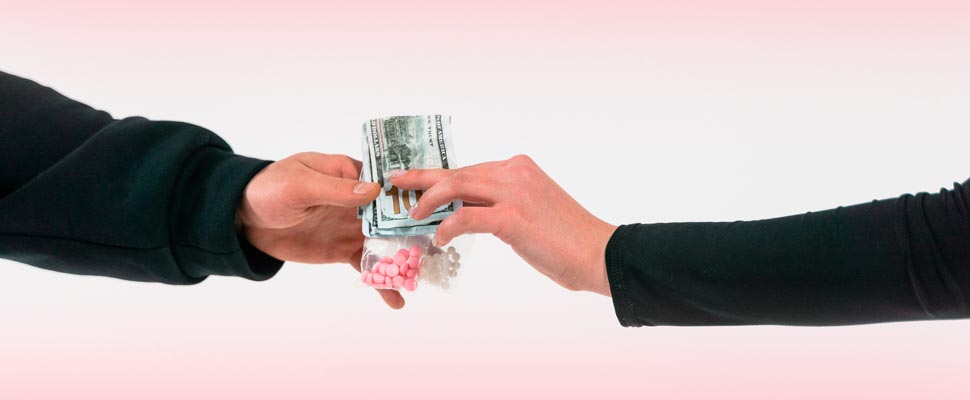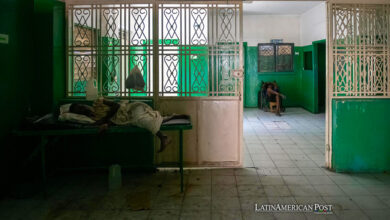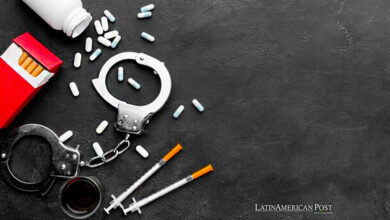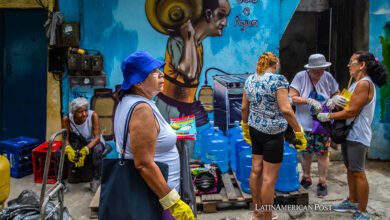Interview: Is a Drug-free World Really Possible?
We spoke with Alejandra Medina, member of ATS and Échele Cabeza, about drugs, consumption and legalization.

The date that commemorates the International Day to Combat Drug Abuse and Illicit Trafficking has been used to stigmatize the use of psychoactive substances, generating social harm. Photo: Pexels
LatinAmerican Post | Vanesa López Romero
Listen to this article
Leer en español: Entrevista: ¿En verdad es posible un mundo libre de drogas?
Every June 26th (since 2000) the International Day to Combat Drug Abuse and Illicit Trafficking, declared by the UN, is commemorated. However, the date has been used to stigmatize the use of psychoactive substances, generating social damage. In response, the global campaign "Apoya. No castigues" (Support. Don't Punish) emerged, which seeks to rethink the use of psychoactive substances.
Regarding this, we were talking with Alejandra Medina, a volunteer from Échele Cabeza, a project that has been recognized in Colombia for its work in reducing the risks and harm of the consumption of psychoactive substances .
LatinAmerican Post: Broadly speaking, what is the main objective that you have in Échele Cabeza? What is your north?
Alejandra Medina: Échele Cabeza is a project of the Corporación Acción Técnica Social, a civil society organization that promotes the human rights of people who use psychoactive substances from a prevention and risk and harm reduction approach . Our mission is to end the idea that a drug-free world is possible. Instead, we seek and work for a world that lives in peace with them and for the regulation of a fair and sustainable market for psychoactive substances.
Also read: Interview: How can you help a person with anxiety?
LP: Why is this date important?
AM: Unfortunately, this day has been used by the most prohibitionist governments and intergovernmental organizations as a space to propagandize and celebrate the War on Drugs . But we already know that it is clearly failed due to its humanitarian, social, environmental and human rights costs in terms of health . The approach that has been given has not achieved that objective that the UN promised of a drug-free world and, on the contrary, has made the weakest links in the psychoactive markets invisible. The date has even been used by governments to radicalize their security measures and stigmatizing campaigns against the use of psychoactive substances.
We seek to redefine this date and make visible the global day of action "Apoya. No castigues", which is also celebrated today, June 26. This campaign is a mobilization against the violence generated by the failed War on Drugs and that seeks to build more sustainable alternatives to address this issue . We also seek to end cycles of victimization, stigmatization, hatred, fear, violence, and war, and to promote the health, human rights, and well-being of communities.
Today we are going out to mobilize to promote the structural reform of drug policy, to open a debate with the media and to make a call for awareness about the damages of the failed War on Drugs.
LP: In the case of Colombia, how are we doing with drug use legalization policies?
AM: From our perspective, we are not betting on the policies to legalize drug use, but on the reforms and policies for the regularization of the markets . This is so because we must think about the comprehensiveness of socioeconomic, environmental, health and human rights factors. You have to think about all the links that are part of the markets for psychoactive substances.
In my personal opinion, in Colombia there was a political will that occurred a few years ago . We saw it materialized in the promotion of regulation of the marijuana market for medicinal use and subsequently the opening of the debate on this issue in the Peace Agreement. But with the change of government, that political will changed and we had a setback. But there is hope, for example, the first bill that proposes the regularization of the cocaine market is currently being debated in Congress.
Así se ven cuando repiten como loros que quién financia el narco- estado son las personas consumidoras, cuando en realidad quien llena los bolsillos de los mafiosos son las políticas de drogas prohibicionistas. Les explicamos hilo. pic.twitter.com/xbgi9aLGE1
— Échele Cabeza (@echelecabeza) May 30, 2021
LP: What do you think is the correct way in which the government should act against drug use and all the links that this entails?
AM: From my personal opinion, I think it is important for the government to prioritize an innovative approach to substance use while respecting human rights, access to information and public health. In Colombia, prevention is still carried out from fear, indifference and stigma; it is necessary to invest and renew in prevention and to do it from the information. The government should institutionalize and take advantage of risk and harm reduction opportunities to reduce the socioeconomic impacts of psychoactive substance use.
LP: Is it possible that there is a responsible consumption?
AM: Personally, I would not speak of responsible consumption. Responsible consumption is "not consuming" , and here we are talking about both illegal and legal substances. They all have impacts on health, so instead of talking about responsible consumption we can talk about safe and informed consumption . We can reach it through access to risk and harm reduction services, which provide as much information as possible about substances. This would allow people to build an informed criterion when making a decision regarding consumption.
###
Alejandra Medina is a professional in Government, Magister in Sustainability, volunteer at Échele Cabeza for three years and technical and regional coordinator of the Nicotina platform project: risk and damage reduction in which she has been working for just over a year.




